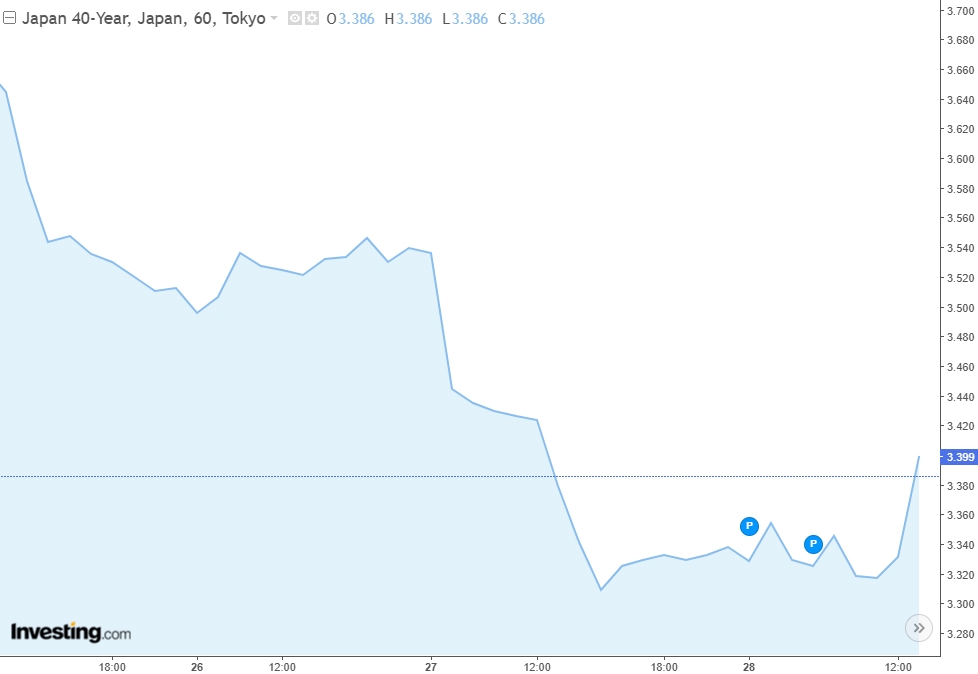Has the Global Long-Term Bond Market Recovered? Another Weak Japan’s Bond Auction Emerged
TradingKey - After the U.S. reduced bond issuance, the UK cut reliance on long-term debt, and Japan signaled adjustments to its bond-buying program, global bond markets appeared to stabilize — with yields retreating and the worst of the long-bond selloff seemingly over.
However, weak demand in Japan’s recent 40-year government bond auction may have dashed hopes for a sustained recovery in global bond markets.
On Wednesday, May 28, following last week’s weak 20-year JGB auction, investors turned their attention to a 500 billion yen (approx. $3.46 billion) auction of 40-year Japanese government bonds.
The results were disappointing:
- Yield cleared at 3.135%
- The bid-to-cover ratio came in at 2.21, down from 2.92 in March, marking the lowest since July 2024
A lower bid-to-cover ratio signals weaker investor appetite. Just like the 20-year auction, this 40-year bond sale reflected growing concerns about Japan’s deteriorating fiscal outlook.
Analysts at SMBC Nikko Securities noted that low participation could also be attributed to high market volatility and the fact that the actual issuance amount will not be reduced for another month, discouraging risk-taking by investors.
Following the auction, 30-year and 40-year Japanese government bond (JGB) yields rose around 10 basis points. Concerns spilled into the U.S. Treasury market as well, with the 10-year yield rising to 4.471%.

Japan’s 40-Year Government Bond Yield, Source: Investing.com
Analysts at Société Générale issued a warning: If long-term JGB yields continue to rise sharply, it could trigger a market “doomsday” scenario — including forced unwinding of yen-carry trades and capital repatriation flows.
As the world’s second-largest creditor nation, a rise in Japanese bond yields could prompt capital inflows back into Japan — while also threatening carry trade strategies that rely on the yen’s historically low rates to fund investments in higher-yielding assets — similar to what happened in early August 2024.
However, there is still hope that the Bank of Japan (BoJ) will take action to ease market tensions. Sources suggest that the central bank will consider adjusting its bond purchase strategy during its mid-June policy meeting.
Some analysts believe that the poor performance of the 40-year bond auction further confirms expectations that Japan will reduce ultra-long bond issuance — a shift that could help stabilize the market.



